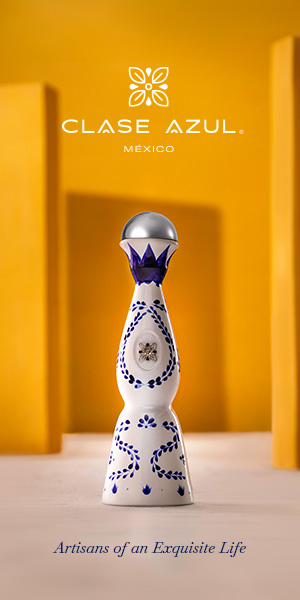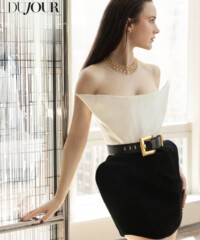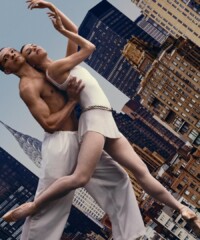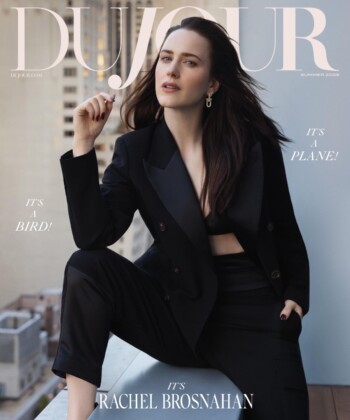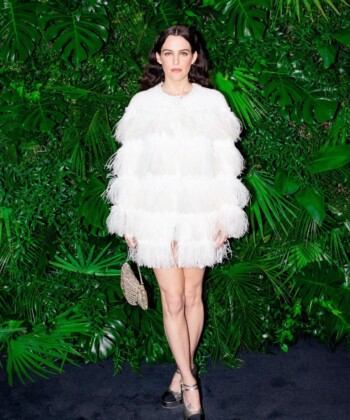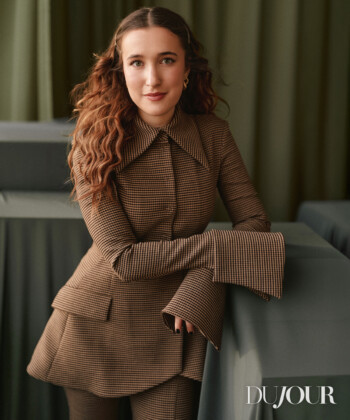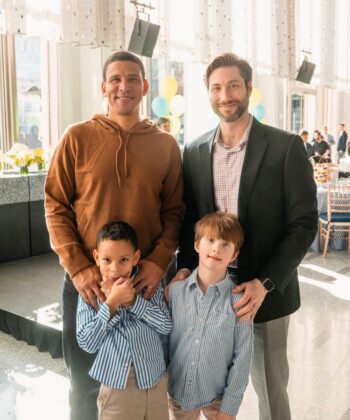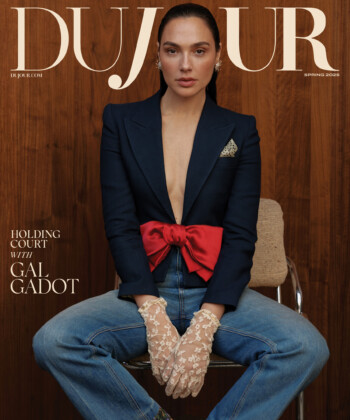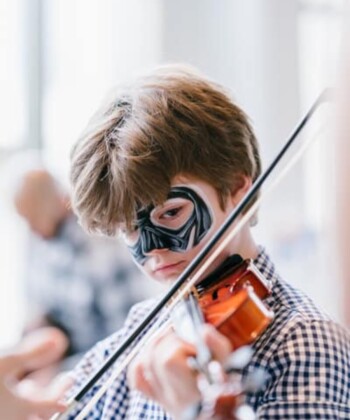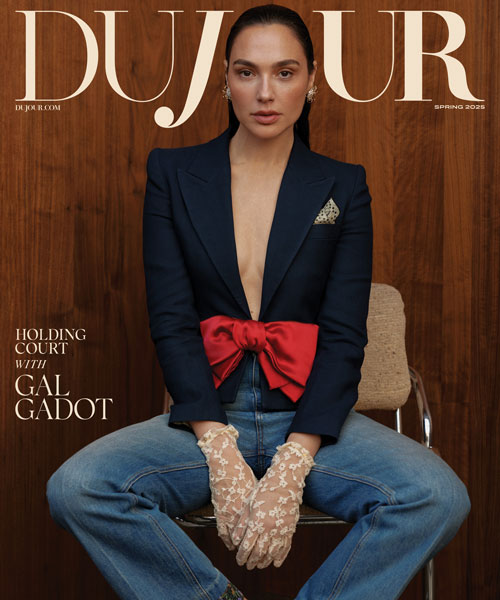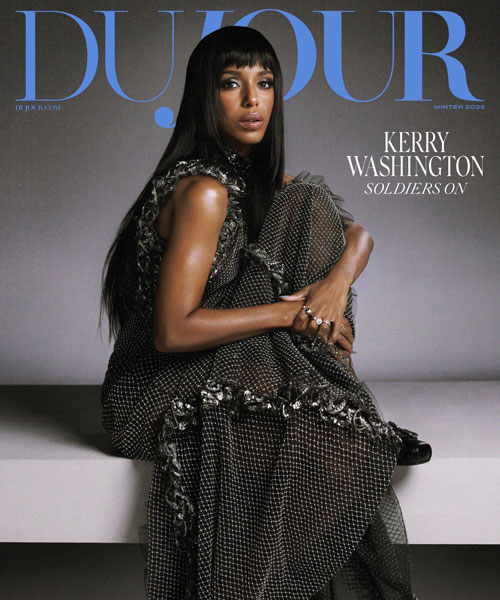Since 1996, when his band Belle & Sebastian released its debut album, Stuart Murdoch has been telling stories. The Glasgow-based musician has won a legion of fans thanks to his brainy songs, many of which paint vivid pictures of lovelorn outsiders dreaming of finding their place in the world. That same skill is on display in God Help The Girl, a Murdoch-directed film—starring Emily Browning, Game of Thrones alum Hannah Murray and adorable newcomer Olly Alexander—that’s opening this week.
Here, the first-time director speaks to DuJour about writing songs, making films and how Johnny Depp helped him cast his lead.
You’ve directed a film that’s not just scored with music but features characters breaking out into song. Are you yourself a fan of the movie musical?
I like some musicals. I make a distinction in my head between what I call “proper musicals” and “musical movies,” movies that just use music well.
Do you have any particular favorites?
I really like Jesus Christ Super Star, and out of the classical musicals, I’d have to say The Sound of Music. I never watched West Side Story; a couple of people have bought me a copy, but I didn’t ever watch it.
People have described your records over the years as cinematic. Is there anything in common for you between making music and making films?
I think one is just an extension of the other. If it weren’t, I’d be in trouble. The idea was that I’d try to bring songs to life, and once I’d written a song, I could imagine what happened. When you put the songs all back-to-back, it’s about 45 minutes of the movie right there, so music formed the backbone of the movie.

A scene from God Help The Girl
What was the greatest lesson you learned making this film?
The greatest lesson that I learned is collaboration. I never will sit in a room for a long time on my own again trying to get a script right. It’s just not me. I noticed as well that when Truffaut wrote The 400 Blows, he wrote that one himself. And then, as soon as he made that one, he brought in three scriptwriters on the next film. It’s going to be quicker; it’s going to be more fun. That’s what I learned.
So do you think you’ll write more films?
I’d love to make more films. I’m not in any great hurry because I’m back working with the band now, and that’s my day job, but this whole world has opened to me, and I like it.
Did you feel any sort of pressure to produce a certain type of film?
Oh, no, absolutely not. In the same way that I never feel pressure to deliver a certain kind of record, we will never try to pander to other people when we make our music—how could you? I pretty much followed my own desire when I made this film.
The movie has a very sweet, sort of zany quality to it. What was the mood like on set?
I always think that you should have a good time all the time. I’d been building up to this for a while, and I really wanted people to have a good time, especially the actors. I really wanted them to be comfortable because I wanted to create a film that felt very comfortable and at ease. We were kind of freewheeling. It was a very punk rock film because, although we had a great group and a very professional group, we had to move so quickly that we couldn’t hang around, so we kind of made a game of it.
How so?
For instance, when we were moving around Glasgow there would hardly be time, so we’d have to get in the truck and move on and we’d end up pushing the trolley of cameras and lights around Glasgow. It seemed like the circus was in town, and it felt like you were kind of hanging out with your buddies when you were making a feature film. We shot real quickly and the cinematographer was great, he shot pretty much everything from his shoulder for quickness, but made everything look so professional.
That’s surprising; it looks very steady from being shot from a shoulder.
I know, that guy was a rock.
The movie relies heavily on your three main characters. What were you looking for in the actors?
That was a bit of a process. Initially, I found most people on tape and I’d watch them on my computer. We got our best guys and I went down to London to do some workshops. We’d get groups of three people for an hour each and we’d spend the whole day with each group. That’s how I met Hannah; she was great. In fact, she was going to do a scene with Johnny Depp on that day in London and she was kind of distracted. You know when a person is going on to something better and they kind of can’t be bothered with what they’re doing? It’s very alluring. She seemed so much cooler than everyone else in the room, and I think that was part of the reason why she ended up getting the part.
Do you have any thoughts of trying to move any parts of this story to stage?
I have no interest. I don’t go to theatre, so it’s not my thing. I have other things to do; I’m going back to the band. But, if someone thought they could do it, I would certainly meet them half way and maybe even write a couple more songs for them.
Are there any other film projects that have worked their way onto your radar?
If I’m going to do another film, it’d have to be my idea; it’d have to come from me. I just let things percolate. Usually, when you work, you go to sleep and wake up with a new idea.
MORE:
Scott Haze’s Chilling Work is Just the Beginning
Mystery and Intrigue with Mark Duplass
What If Star Zoe Kazan on Skinny-Diping and Daniel Radcliffe



























